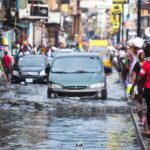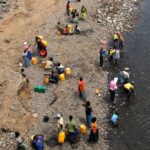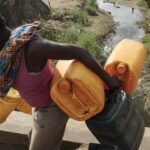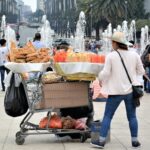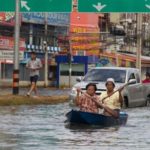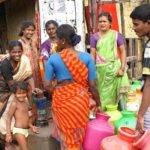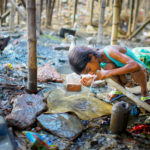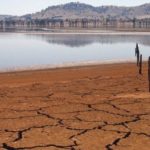Posts in the 'Water' category
In a time of polycrises – from economic and political instability to health and environmental emergencies – water is a resource that cannot be relegated to the background. Especially in urban environments, water demand is ever-increasing and in too many ...

Bogotá, Colombia is in the throes of a water crisis. After several months of dry weather caused by El Niño, the Chingaza reservoir system, which provides 70% of Bogotá’s water, reached its lowest level in history. The city’s over 8 million residents are ...

The Guacheneque Páramo, where the Bogotá River originates, represents the second largest source of drinking water for the city of Bogotá, Colombia. It is a key ecosystem that supplies water to approximately 25% of the city’s 7 million inhabitants. However, due to ...

A systematic, consistent, national-level dataset on India’s water bodies that could inform efforts to improve water management and increase resilience has been long awaited. The National Water Body Census 2023 is a crucial milestone in creating such a database. Undertaken ...

New data from WRI’s Aqueduct Water Risk Atlas show that 25 countries — housing one-quarter of the global population — face extremely high water stress each year, regularly using up almost their entire available water supply. And at least 50% of the ...

South Africa’s cities are economic engines, drawing workers across the country and the continent. Of the country’s 58.8 million population, 68% live in urban areas. Between 2000 and 2014, urban area in South Africa expanded by 1,464 km2. Population projections ...

Water ripples through many sectors of the global economy. Whether companies are in the business of hygiene or hamburgers, phones or pharmaceuticals, they all have water in their supply chain. It takes 12,000 liters of water to produce a single ...

Water for human consumption is increasingly inaccessible, due to poor management, degradation of water sources, the effects of climate change and more. Marginalized groups — such as minorities, rural communities and women — are disproportionately affected by water security issues, and women often play a key ...

Water is essential to human health and well-being. In cities, leaders strive to provide secure access to clean, safe and affordable water. In rural areas, farmers hope for adequate rain and healthy rivers to produce healthy crops. The coronavirus pandemic ...

Flooding has already caused more than $1 trillion in losses globally since 1980, and the situation is poised to worsen: New analysis from WRI’s Aqueduct Floods finds that the number of people affected by floods will double worldwide by 2030. According to data from ...

As the coronavirus crisis spreads throughout the world, it is increasingly clear that people with the least access to essential services like water will feel the most dramatic effects. Major health organizations advise washing hands more frequently – for at least ...

When Cape Town, South Africa, and Chennai, India nearly ran out of water, these two cities managed to avert Day Zero with solutions that were creative and effective but far from perfect. In Cape Town, there were mile-long queues of people waiting for hours for water. ...

What if you could send a WhatsApp message and a colorful green van would deliver free native tree seedlings directly to you? In Salvador, Brazil, the local government does just that. Painted with a picture of a biodiverse Brazilian forest, ...

In Cape Town, South Africa, and Chennai, India, “Day Zero” events where cities run out of water have drawn global media attention. But while these catastrophes seem like rare, temporary crises caused by droughts or mismanagement, life without ample water ...

Once-unthinkable water crises are becoming commonplace. Reservoirs in Chennai, India’s sixth-largest city, are nearly dry right now. Last year, residents of Cape Town, South Africa narrowly avoided their own “Day Zero” water shut-off. And the year before that, Rome rationed water to conserve scarce ...









